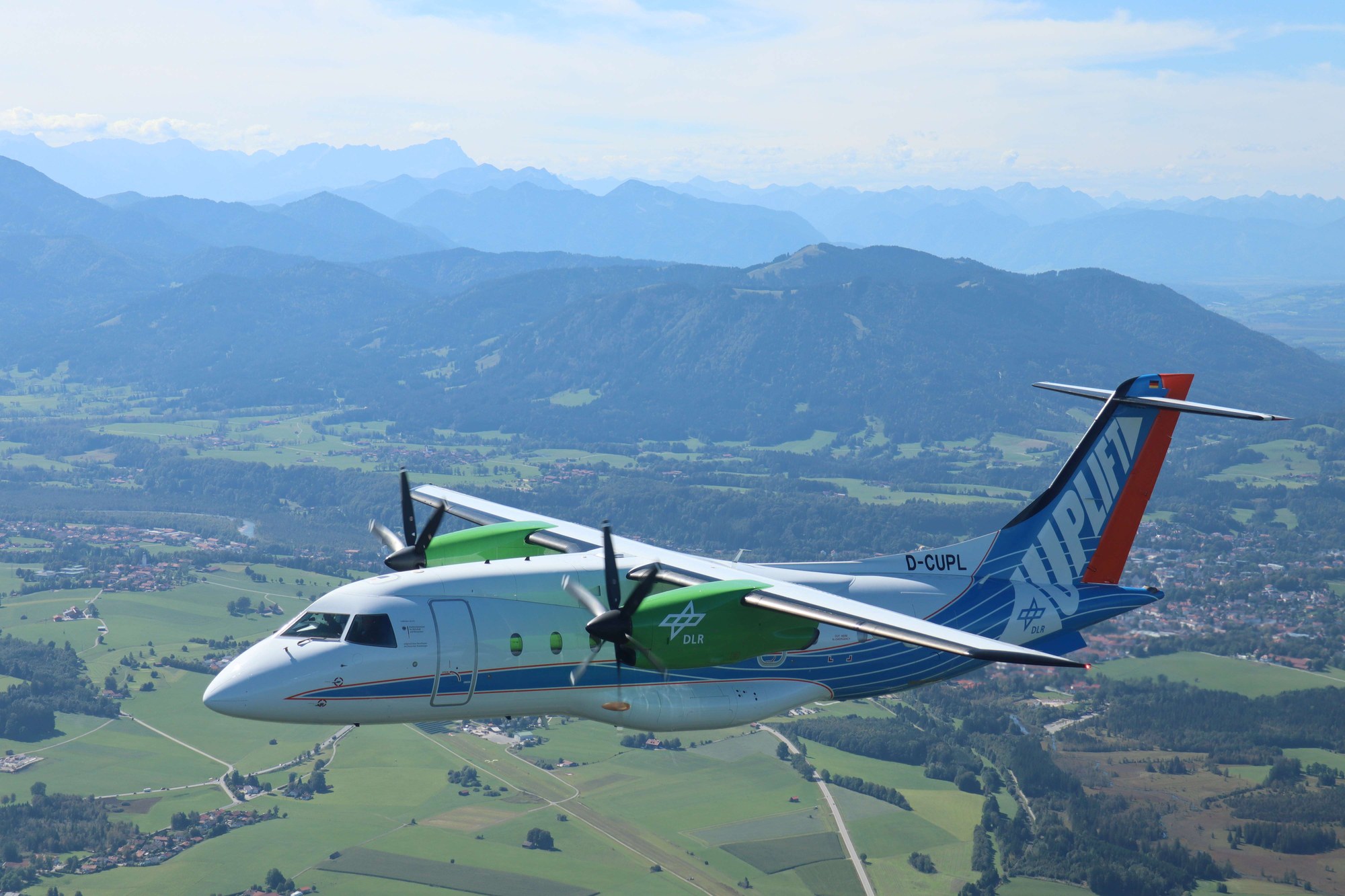On course for climate compatibility
On course for climate compatibility
As the latest addition to DLR's research fleet soars above the Bavarian town of Bad Tölz, only the aircraft's livery hints at its future mission. By the end of 2025, the Dornier 328 turboprop passenger aircraft will have been converted into an UpLift flight test platform for environmentally friendly technologies. The aim of the UpLift project is to support the development of all technologies that will help to make aviation more sustainable. In this context, the aircraft will be made available as an open test platform. Among other things, the turbines are being adapted to be able to operate with fully formulated synthetic aviation fuels (SAFs). For the first time, researchers will be able to analyse the air chemistry and contrail formation of a turboprop aircraft that runs 100 percent on aromatic-free SAFs in real-life operations. Aromatics – cyclic hydrocarbons – are an essential component of conventional aircraft fuels; for one thing, they cause the polymer seals of tanks to swell, preventing fuel leaks. However, they are largely responsible for the formation of soot during fuel combustion in engines. Aromatic-free SAFs, by contrast, reduce soot formation and thus also the formation of contrails. UpLift will be presented for the first time at the ILA International Air Show in Berlin from 5 to 9 June 2024. The main target group for the UpLift flight test vehicle, registered as D-CUPL, is the German aviation industry – especially small and medium-sized enterprises that do not have their own research aircraft. DLR is cooperating with Deutsche Aircraft GmbH on the current conversion and expansion of D-CUPL into a flying test bed. D-CUPL will be stationed at DLR's Flight Experiments facility in Braunschweig.

